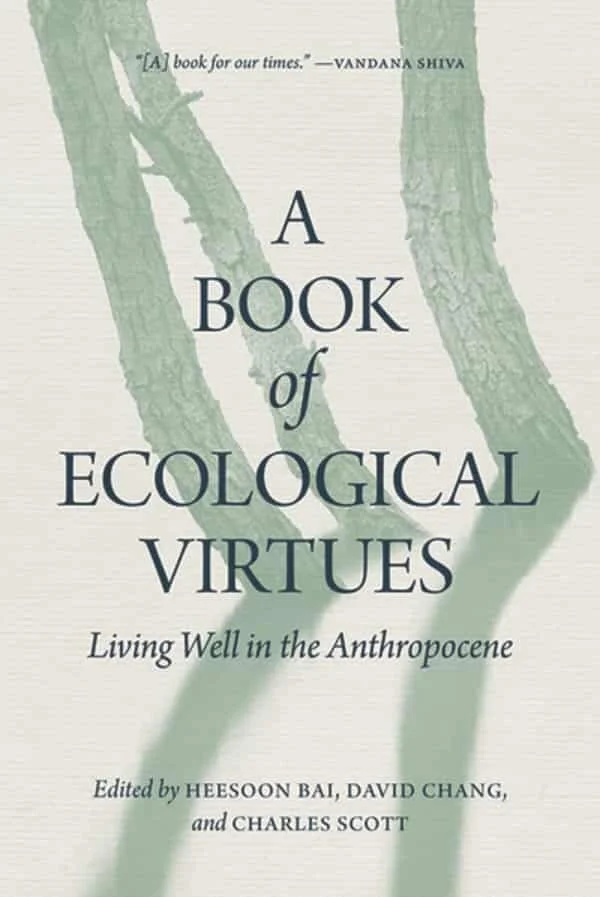SASKBOOKS REVIEW - “A Book of Ecological Virtues: Living Well in the Anthropocene”
Edited by Heesoon Bai, David Chang, and Charles Scott
Published by University of Regina Press
Review by Shelley A. Leedahl
I made several “notes to self” while reading this anthology. Although not a critical marker re: the book’s literary or academic merit, it does indicate that the text spoke to me on a personal level. Read Canticle to the Creatures (St. Francis), I scribbled. Try editor/contributor David Chang’s awareness practice on Pg. 226/227. Google Peter H. Kahn, Jr. Share the quotes on grief with ____.
This heartening anthology of well-constructed essays addresses how one can live both ethically and full-heartedly during this epoch’s “sombre reality of ecological degradation.” The trio of editors – all professors at Simon Fraser University - asked diverse contributors to consider not only what living well looks like in these times, but also what “suffering well” means. “No one discipline, tradition, or orientation has privilege over another,” the editors explain. Indeed, they have forged a “textual garden” in which scholars, educators, and poets from various disciplines and traditions – Buddhism, Christianity, psychology, ecology, ethics, traditional knowledge systems, etc. – present their interesting, individual responses, each “marked by … incisive scholarship and experiences of lived struggle.”
In their co-written piece, Nancy J. Turner and Darcy Matthews ask us to consider “animals, plants … mountains and rivers” as “our kin, ‘our relations,’” as do Indigenous Peoples, and they suggest the “use of ancient stories and ceremonies as conservation tools.” Straits Salish reef netters believe the sockeye salmon “was once a human”.
Having empathy for all living things is a common thread here, and each writer’s contributed valuable material, but the essays that begin with personal anecdotes have extra impact. I closely related to Peter H. Kahn Jr.’s essay on “Ecological Presence,” which he says is “an experience of perceptions that can emerge through interaction with nature.” In his case, this happened while bivouacking on a mountain plateau. He writes eloquently of the experience of awe: “I felt that I was a small part of it, with it … yet but a speck in that vast white landscape”. Writers David Greenwood and Margaret McKee concur: “If we give ourselves permission to slow down and find a quiet place where the animal body of our emotional selves can reconnect to the earth, and our capacity for awe and wonder can awaken, we will learn to hear the earth again.”
Douglas E. Christie’s exemplary “Never Weary of Gazing” begins with a description of building a “little house by the sea” from beach detritus with his young daughter, and he maintains that we must “learn to see the world more deeply” in order to “[renew] our ethical relationship to the living world.”
Another highlight was David Chang’s bold essay in which he discloses his ethical decision not to have children, and how this decision often results in “moral distress” because it “upsets an underlying cultural order”.
Whether through contemplative practice, writing poetry, or building a house from twigs, practicing the “art of attention” is a first step toward ecological virtue and living well in the Anthropocene. With humans currently “consuming 60 percent over what the global ecosystem [can] sustainably provide,” this book’s time has come.
THIS BOOK IS AVAILABLE AT YOUR LOCAL BOOKSTORE OR FROM WWW.SKBOOKS.COM


